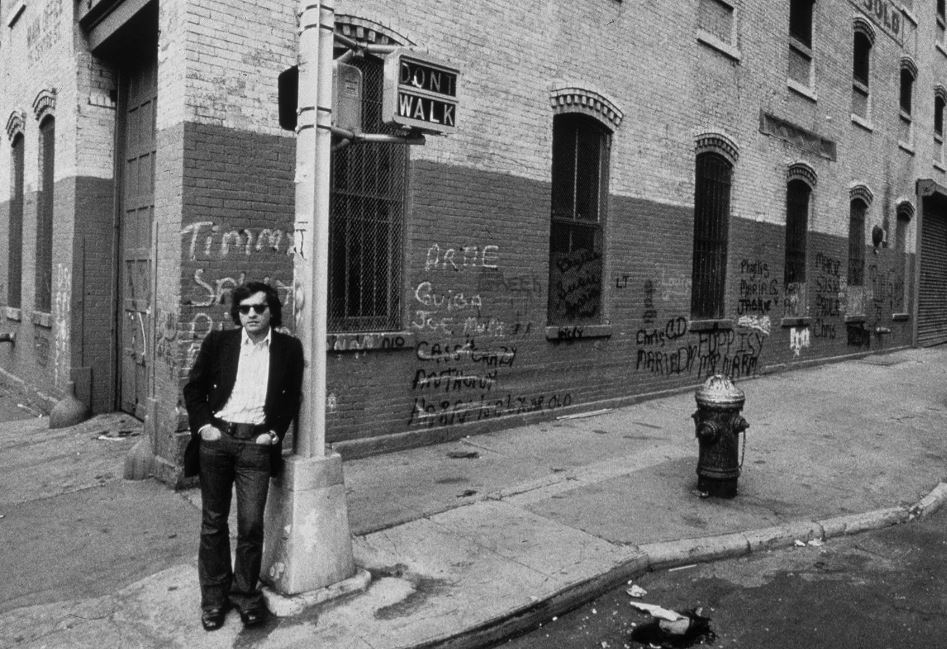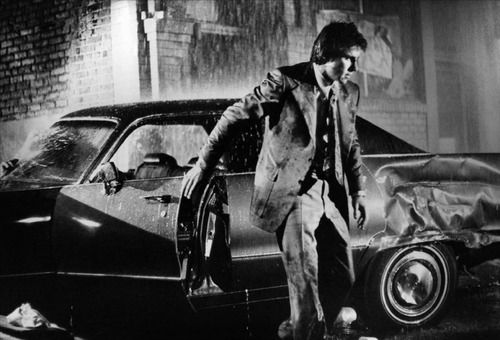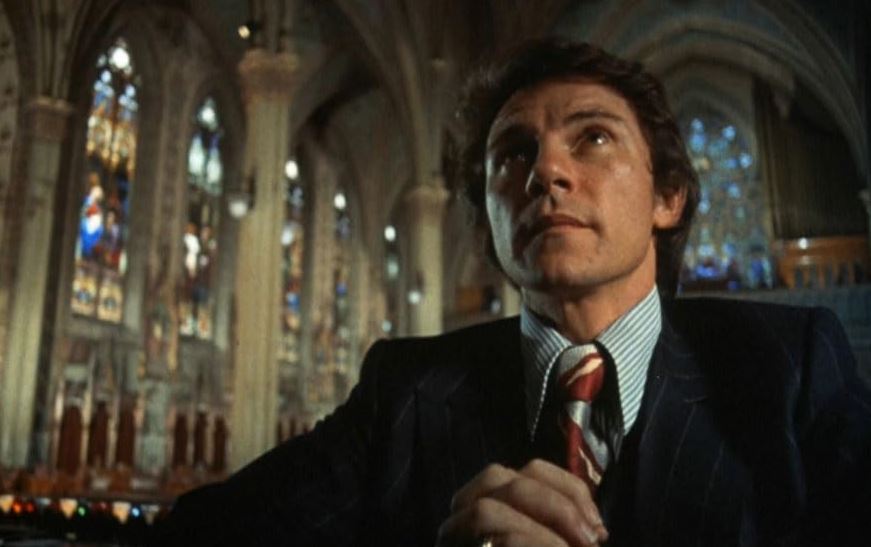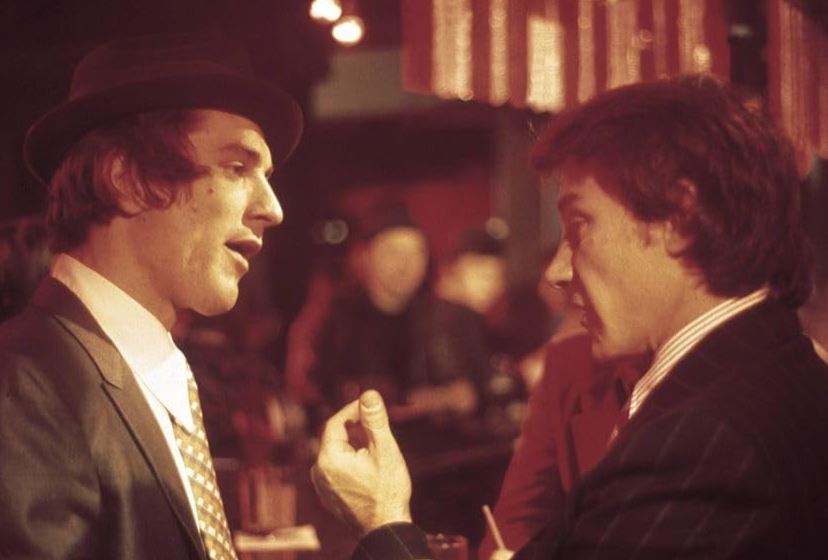
Scorsese’s first hit was also the first time he hooked up with De Niro. Lots of people see Mean Streets as an essential entry in their impressive partnership, but I think it would produce juicier fruit down the line. I hope you’re not gonna insist that makes me a mook.
Cast: Keitel, De Niro, David Proval, Amy Robinson, Victor Argo, Richard Romanus, Cesare Danova
The story: Some unenlightened, less than saintly mates hang around a bar and do goofy shit in Little Italy, New York.
Why it works: The fluid direction. Scorsese’s lively skill with the camera patches over the significant flaws in his co-penned script. Whether he’s doing the handheld stuff, slowing things down or perching the camera on top of a taxi cab, he brings the Italian neighborhood to life with real flair. It’s a loving portrait of churches, cafes, bars, Mafiosi and street carnivals, accompanied by a consummate (if sometimes intrusive) choice of music, especially his opening use of The Ronettes’ Be My Baby.

Mean Streets is also very good at capturing a particular type of immature man. And so we get the macho shit, the determination not to lose face, the brawling, and the play fights in the street with dustbin lids. These are guys that will rip off some kids for twenty bucks and then pop along to the cinema on the proceeds, utterly impervious to their pathetic, parasitical bullshit. It’s a man’s world or at least a playpen crammed with overgrown adolescents that Scorsese knows well. In particular, there’s a marvelous sequence in which Keitel becomes drunk. The way he goes from boisterous hi-jinks to lovey-dovey to feeling the strain to passing out captures inebriation in a way I’ve yet to see bettered.
The acting is often good, especially the energetic De Niro. The essence of his pork pie hat-wearing Johnny Boy character is brilliantly caught during his first scene when he blows up a mailbox for no reason except the thrill. He’s an intensely unlikeable loser of the first degree, a workshy bullshitter and ‘punk bastard’ begging to be rubbed out. Or as he tells one guy he owes three grand: “I don’t give a shit about you or nobody else.” Amen.
What works against it: The way Scorsese lights the blue touch paper and nothing much happens. The meandering Mean Streets contains a tiny, somewhat predictable story. It’s over long, too talky and (despite running for almost two hours) ends abruptly. It also contains quite a few odd scenes that appear to have been included to add color rather than push the story forward. Just look at when two gays (including one limp-wristed, lisping stereotype) somehow end up tagging a ride with our racist, homophobic heroes. Or listen to Keitel telling his girl about a dream in which they’re just about to make love and he cums blood all over her instead. Huh? Then a Vietnam vet is introduced for no apparent reason, only to freak out a few minutes later over an unspecified incident. And what’s the point of Keitel’s bar-owning mate showing off a pair of baby lions in cages when they’re never seen again? I also wasn’t keen on a knockabout bar fight scene, a wobbly sequence played for laughs that didn’t ring true.

Scorsese attempts to weave religion into the narrative from the opening moment in which we hear Keitel’s off-screen words: “You don’t make up for your sins in church. You do it in the streets.” Keitel’s a practicing Catholic but the depiction of his faith doesn’t amplify or subvert anything going on. He believes in hellfire, often touching naked flames to feel the pain, but it’s all a bit half-arsed. I also didn’t understand why his miscast girlfriend is shunned because she has epilepsy. I know Catholics believe a heap of daft shit, but surely by the early seventies they’d accepted epilepsy as a neurological disorder that has nothing to do with demonic possession?
Perhaps the only way religion adds to the narrative is Keitel’s Jesus-like determination to save Johnny Boy. “Who’s gonna help him, if I don’t?” he asks his girl. “Nobody tries anymore.” But given that it’s obvious Johnny is a lost cause and the ‘biggest jerk-off around’, Keitel’s altruistic actions just seem naive, if not absurd.

Verdict: Mean Streets has definite strengths. It announced Scorsese as a world-class director, as well as showcasing Keitel and De Niro’s talents. Perhaps, though, it’s better to view it as a non-judgemental, slice-of-life drama than an action crime flick. If you keep your expectations of thrills and spills low, then maybe it works better, but for me it sets things up and instead of delivering just keeps going in little circles. It would take another three years until Scorsese delivered his first masterpiece in the form of Taxi Driver.
Leave a Reply